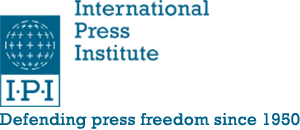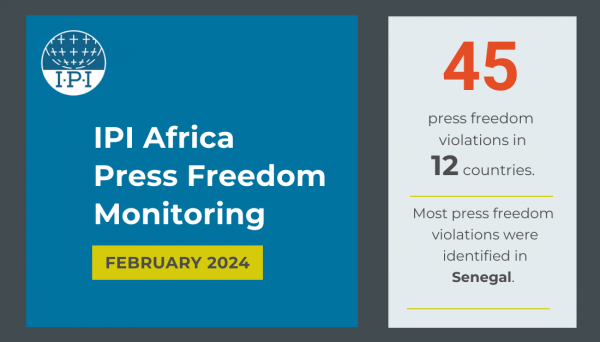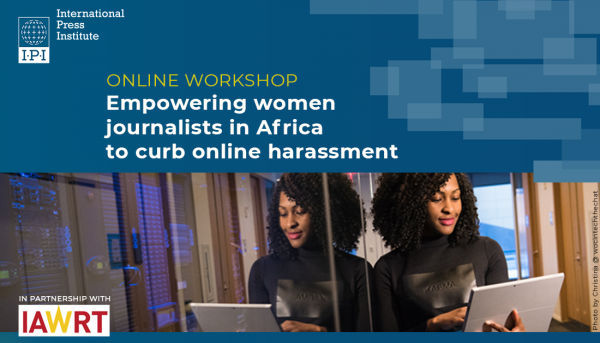The IPI global network has published the new resource toolkit “The Foundations of Press Freedom in Africa”. The toolkit is a compilation of key international, regional, and subregional frameworks for the protection of media freedom, the right to access information and the safety of journalists in Africa.
This toolkit complements IPI’s press freedom monitoring and advocacy in Africa. It is designed to be used as a tool for domestic and international advocacy groups and other stakeholders working to support and improve the environment for press freedom and journalists’ safety.
The African Charter on Human and Peoples’ Rights is the anchor of the human rights system in Africa. Article 9 of the Charter provides for the right to media freedom. Stemming from the African Charter is also the African Commission on Human and Peoples’ Rights. Additional special mechanisms exist such as the Office of the Special Rapporteur on Freedom of Expression and Access to Information to monitor and make interventions in the case of violations of the rights to freedom of expression and access to information.
This toolkit outlines these and other international and regional frameworks that advocacy groups and other stakeholders can rely on to improve the media environment, demand accountability, and curb impunity for attacks on the press.
Among other sources, the document highlights critical decisions handed down by the African Commission, the African Court, and sub-regional courts which further clarify state responsibilities and obligations toward media freedom. These include decisions on states’ responsibility to investigate crimes against journalists; criminal defamation; content regulation; the public’s right to receive information; and limitations on freedom of expression.
See also:
“Press Freedom in Zimbabwe – National, Regional and Global Frameworks“
This report is produced as part of IPI’s Africa programme, which is supported by the Government of Canada’s Office of Human Rights, Freedoms and Inclusion (OHRFI)





